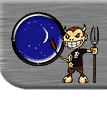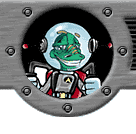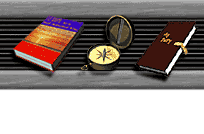





 |
 |
 |
||
 |
 |
 |
||
| |
|
|
|
|
| Home : Cognitive Module : Value of Structure : Punishment | ||||||||||||||||||||
PunishmentPunishment and coercion are discipline techniques that decrease behaviors. How are they different? Punishment, by definition, lessens a student's future behavior. In addition, it is deliberately chosen to be aversive or unpleasant -- that is, to be a deterrent. It also should immediately follow the behavior that is targeted for decrease. Unfortunately, it does not teach a better set of behaviors. In addition, it often sets up defensive reactions, power struggles, anger, humiliation, and can eventually result in the loss of relationship. Consequences can be viewed as different than punishments, particularly if they are natural consequences rather than contrived situations meant to simulate cause and effect. For instance, touching a hot stove usually decreases reaching out to touch the stove. The natural consequence of being burned changes our approach to hot objects. If we get hurt riding on a skate board, we may not want to use one again. If we get a stomach ache from eating green fruit, we learn to modify our eating. Dreikurs introduced a discipline technique called logical consequences. He believed it important to diminish the adult response of punishment for unwanted behaviors by giving children the sense that their actions resulted in the outcomes. Adults seek natural or logical extensions to behaviors and apply them to youth. This does not always work well. Sometimes the adult is too angry, the child refuses, or the response is too contrived. Once example is someone burning a child with a match, a logical next step that many people use to stop children from playing with matches. It is not really a logical extension, and is usually considered abusive and coercive.
Consequence Quiz Directions: Read each of these and mark them as N for a natural consequence or L if it is a logical consequence (you know, contrived to fit). Feel free to place a P on any that are punishments.
Answers
Things to Ponder: 1 What is the difference between natural and logical consequences and punishment? do they ever overlap?2. Is coercion ever called for? Does coercion make an action punishment? 3. When is corporal punishment appropriate? 4. Should we punish students by giving them more work? 5. Should we reward them by reducing work? 6. Is paddling a form of bullying -- Might makes right? Once you
have completed this topic you should: |
||||||||||||||||||||
| E-mail J'Anne Ellsworth at Janne.Ellsworth@nau.edu | ||||||||||||||||||||
|
Course Created by J'Anne Ellsworth & Center for Technology Enhanced Learning Copyright
© 2001 Northern Arizona University |
 |
 |
 |
 |
 |
|